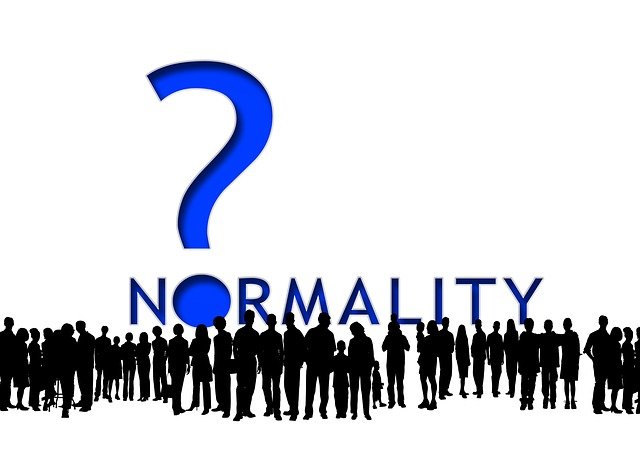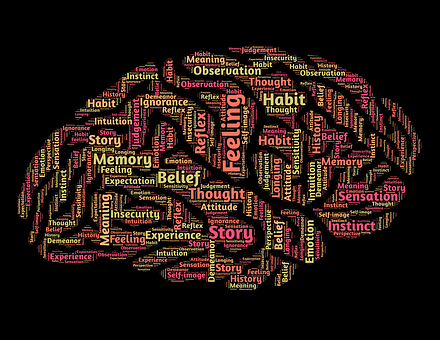World Mental Health Day is on 10th October, and this year the theme is ‘Young People and Mental Health in a Changing World’. Over the years of counselling young people I have begun to notice a pattern – the consistent issues and the changing impact.
Peer pressure, for example, has always been around. When I was at school, the worst case scenario of ‘not conforming’ was a friend not speaking to you for a while, then over time it was like it had never happened. Now, it can be over social media in seconds – whatever you do – a permanent, wide-reaching and potentially highly damaging scenario. It’s like being a modern day caveperson surrounded by multiplying numbers of sabre-toothed tigers. You have to face the often overwhelming stress and anxiety of survival.
So why is good mental health important for young people?
The majority of mental health problems start at a young age.
75% of mental health problems in adult life start by the age of 18i. Pure and simple. Yet we still tend to focus on cure rather than prevention, and even then we don’t always have the answers. Whether as individuals, care providers or educators, we all have a responsibility to help young people develop the emotional intelligence and emotional literacy needed to recognise and talk about their thoughts and feelings. Not feeling safe to go out, choosing to spend time online, having nowhere to go – all factors in isolation. Isolation equals less communication with the outside world. Both can have a negative impact on emotional wellbeing.
It helps them to develop positive coping strategies.
Recent figures show that 22% of 14-year-old girls in UK self-harmi and that in 2017 there were 177 suicides among 15- to 19-year-olds, compared with 110 in 2010ii. Drinking alcohol, using drugs and eating issues are just some of the other common methods young people turn to. Being under pressure to have a certain number of ‘friends’ or ‘likes’, to look a specific way, or be involved in groups are all things I hear often from young people. The ‘Blue Whale’ game, for example, encouraged young people to self-harm, and to feel a sense belonging they did – to the point that it left some feeling suicidal. Encouraging them to find ways of managing difficulties from a young age is so important – self-belief, talking, exercise, drawing, mindfulness, writing – anything that helps thoughts and feelings to be processed and managed positively.
It helps them to make balanced decisions.
So you’ve heard about the left-brain and right-brain? When we’re feeling stressed, angry, anxious, nervous, sad etc the right (emotional) brain takes over the left (logical) brain. Combine this with a developing young brain where risk taking is prevalent and there is potential for anything to happen. For young people, being able to understand their feelings, talk about them and deal with them positively helps to keep the logical part of the brain more productive. It’s a fact of life that we all get anxious, sad and angry at times, but how we manage it is key to the outcomes. So the young person comes to counselling because they feel anxious about being near other people, they stay at home and dread going out then feel more anxious and get caught in vicious circle. Once they have talked it through and developed positive coping strategies, they can make a balanced judgement about whether a situation is threatening or not, establish the confidence to manage it and begin to live a more productive life.
It improves their chances of a healthy adulthood.
Adverse childhood experiences (ACEs) refer to stressful events between the ages of 0-18 including neglect, abuse, witnessing domestic violence and divorce. Researchi has shown that ‘trauma in childhood can lead to reduced educational attainment, mental and physical health problems and difficulties in adult relationships’. Chronic stress, fear and anxiety can have adverse effects on a young person’s ability to self-soothe and regulate their emotions. Additionally, the impact of stress hormones means that the immune system can become worn out, leading to health problems in later life. Identifying and supporting those who have had such experiences can have a positive impact on their recovery, resilience and self-perception.
It increases chances of life satisfaction.
Maybe not one for education professionals, but research by London School of Economics concluded that a child’s emotional health is far more important to their satisfaction levels as an adult than other factors, such as if they achieve academic success when young, or wealth when older. Developing resilience at a young age enables us to work through life feeling able to face difficulties and underpins challenges that we may go on to face. What comes first – good exam results or the belief we can achieve? Getting a job or self-confidence?
It is more important than ever that in the changing world, with increasing external influences, we maintain an awareness of the impact on young people. Talk, allow them to safely present their inner self to the outside world, seek any necessary support and encourage them to achieve their potential. This is our future.



